My Favorite Shows
1 The Last Kingdom


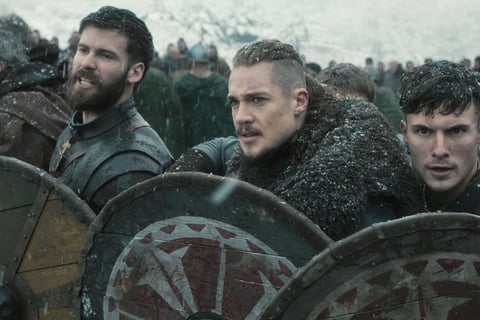

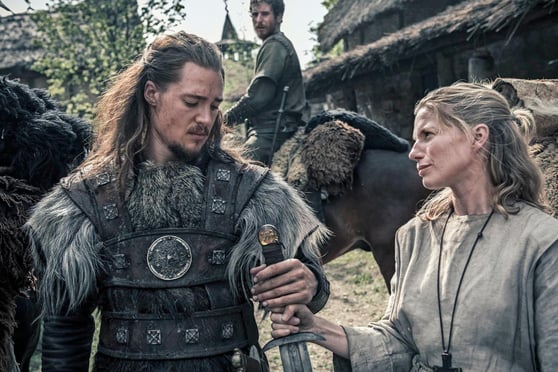


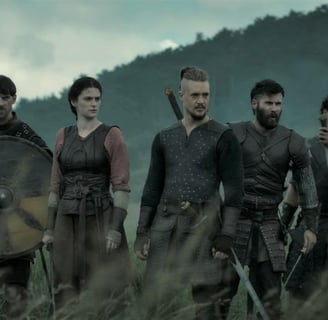
Bernard Cornwell did not meet his birth father until late in his life; upon meeting that man, Outhred, Cornwell found his family tree going back to the 6th century and learned that his family had been Saxons in Bebbanburg. He decided to write about the hundred-plus year history of the conflicts in England. The historical story, like Cornwell’s other great works (including the Richard Sharpe series about the Napoleonic wars) is true, although some of the characters, particularly Uhtred, were inserted by Cornwell so he could have one main protagonist working with the true historical figures from Denmark, Wessex (West Saxons), Sussex (South Saxons), Mercia, Wales, and Scotland. (Cornwell does the same thing with the Sharpe books, which also became a BBC series; all the historical battles and characters are true, except the fictional Richard Sharpe is inserted into those critical events, often taking the role of an actual historical figure.)
This show is based on Bernard Cornwell’s series of thirteen books, The Saxon Tales (since renamed by him to be The Last Kingdom books, after the show popularized that name). In the story (both the show and the books), Uhtred son of Uhtred (Alexander Dreymon) takes a circuitous path to become the rightful ruler of Bebbanburg (pronounced Bebbanborough, now Bamburgh Castle in Northumberland), along the way both conquering and uniting the Danes who have invaded England, and alternately supporting and fighting the man who became Alfred the Great, the first king to unite (mostly) all of England. Uhtred’s opening quote in the show is “Destiny is All”; in the books, that is written in Old English as “wyrd bid ful araed”: Fate is inexorable. Usually it shows up when something does not go Uhtred’s way, and he uses it to mean that he will accept what happens. It does not mean that all will work out well.
The first five seasons of The Last Kingdom each cover two novels from The Saxon Tales, bringing us from the first book through the tenth. The final three books were wrapped into a concluding feature-length film, Seven Kings Must Die. Uhtred is betrayed by his uncle, who then claims Bebbanburg and sells Uhtred to the Danes, where Uhtred is raised lovingly and happily, but he eventually finds himself helping Alfred (not yet Alfred the Great, currently the ruler of only Wessex) overthrow the Danes, because Uhtred wants to take back Bebbanburg. Over subsequent seasons, Uhtred fights the Danes in Northumbria; Wessex and Mercia unite, while a particularly evil nobleman works to overthrow Alfred; Uhtred fights and defeats Ragnar (yes, that Ragnar, from the mostly excellent Vikings show on the History Channel); Uhtred develops relationships with Brida, Thyra, and Gisela, and eventually becomes lover and ally to Lady Aethelflaed (Alfred’s daughter), but she is forced to disavow him and announce that she will bear no heirs, in order to be accepted as Queen of Mercia, thereby putting her people ahead of her commitment to Uhtred.
Uhtred has (at least) two children and becomes close allies with Father Beocca and Finan, and also helps raise Alfred’s son and heir, despite fierce opposition from Alfred’s devout and spiteful wife, who places faith in her grotesquely-misunderstood god above loyalty to the king and his heirs (trusting that prayer will protect and heal them, and ignoring sound advice and help when it is most needed). The total series covers about ninety years and multiple rulers, so liberties are taken with Uhtred’s age.
Why is this number one on my list? It is incredibly exciting and complex, and most of the cast is astounding. Uhtred and his allies are captured several times, eventually fight and escape; he keeps uniting various English and Danish groups against either other Danes or the corrupt alderman’s army; he is granted status by Alfred, then has it taken away by Alfred’s wife, restored, taken away again by various nobles opposed to Alfred; he has this incredibly heartwarming then ultimately heartwrenching relationship with Lady Aethelflaed; his dream of reclaiming Bebbanburgh is always in the distant background, until finally late in the series it is not, and he rallies his friends to take it back.
There might be a slow episode in some seasons, out of eight or ten episodes per season; that’s a pretty fantastic run of conflict, defeat, triumph, union, and family alliances. It’s also a great way to learn about the true history of England, from King Alfred, his wife and children, to the Danish invasions, treaties, and ultimately the peaceful division of lands within England. (This changed a century later when William the Conqueror invaded from Normandy and claimed England. Modern rulers are descended from William, not from Alfred, but this happens after The Last Kingdom. The term Anglo-Saxon is the result of Alfred’s rise, because England before Alfred was settled by Saxons (Germans), and he became the first Anglo-Saxon ruler by using the term Angles to describe the union of the English and Saxons.)
2 Justified
For years, Justified was at the top of my list. Then The Last Kingdom came out, and by the second season, it was clear that it would be my new top show. It’s as long-running as The Last Kingdom, and like that show, each season covers a complete story (or two); it’s not episodic, and the show builds throughout each season. But where The Last Kingdom is set in a bigger world and each season has a lot of battles, Justified focuses on Deputy U.S. Marshal Raylan Givens (Timothy Olyphant, in by far his best and most complex performance, despite other great work in Deadwood and Daisy Jones and the Six), with more episodes per season. (Note that Deputy U.S. Marshal is not an assistant “deputy” role; it is a very senior Marshal, with significant authority, reporting to the chief marshal in each of 94 districts.)


The first season has Raylan returning to Harlan County (against his wishes), where he gets caught up in a very complex dynamic involving Boyd Crowder (Walton Goggins, who is more complex and unpredictable here than in his other great works), his father Bo, his sister-in-law Ava (who killed her husband), and the heads of a Mafia cartel. Boyd and Raylan work together, then against each other, then together again, setting up their uneasy relationship for the rest of the series.
As it progresses, Boyd and Ava get involved; Boyd turns on Raylan, then helps him, then turns on him again; Ava gets shot; a whole season involves Neal McDonough (in his usual corrupt role) kidnapping, murdering, and turning on his mob allies, with a big and deadly final conflict; Raylan confronts his imprisoned father; heroin dealers fight and eventually take control of Boyd, who finally turns on them; Raylan’s ex-wife, Winona, comes and goes into his life, as they argue and try to reconcile.
Finally, all the subplots come to appropriate conclusions, with Boyd jailed, Ava hidden with Raylan’s help (now shown to be raising her and Boyd’s child), and Raylan happily seeing his ex-wife and their young daughter.
There are plenty of battles and bad guys, but it’s mostly a cerebral show, more about Givens’ off-the-books investigations, his family, his on-again off-again relationship with Boyd Crowder, and the many steps he’ll take, both legal and illegal, to protect his family, Ava, and a few friends. Raylan is often at risk, and occasionally captured. He does not have the full support of his superiors in the U.S. Marshals Service because he’s a bit of a trigger-happy renegade, more inclined to cause trouble than to follow the rules. But in key moments, when Raylan’s behavior has gotten him deep into life-threatening situations, his Chief begrudgingly helps him and recognizes his service. It is in many ways a slow-burn of a show, but impossible to pause.


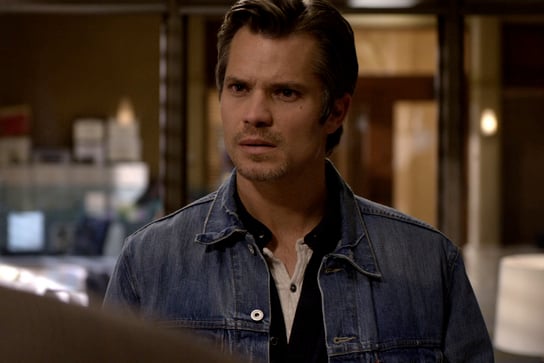

3 Karen Pirie
This show was a complete surprise. Karen Pirie is a young detective sergeant unexpectedly promoted and assigned a decades-old cold case that has just received public attention. Her fellow detectives are surprised that a woman has been brought into this role, and some of them think it’s a “diversity” hire. (They secretly nickname her “ticker” because they think she was hired to “tick” a box.) She herself is not sure why she was promoted, but hopes it’s because her new boss thinks she deserves it.
It turns out that her supervisors brought her in counting on her to bungle the case, and don’t expect her to succeed. They have a direct connection to the old case, but she doesn’t know that.


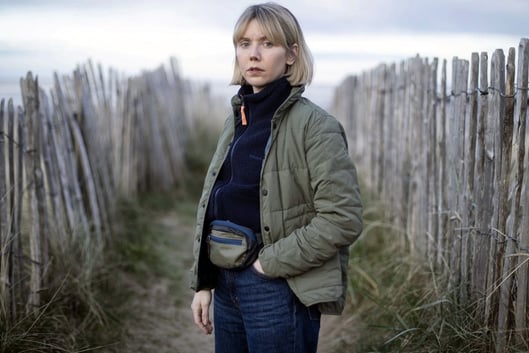

As she pursues the case, her boss’s boss looks for ways to stop her. But she’s Karen Pirie, and she won’t be stopped. Old evidence from the cold case is uncovered and her supervisors tell her to stop.
Their actions make her more suspicious and more determined (though she still doesn’t suspect the actual perpetrator); the families involved in the original case don’t trust her, because they believe the original cops covered it up; Pirie’s investigation finds evidence that the families were right all along; and when they finally agree to provide her with relevant testimony, everything blows up.
She is formally ordered off the case. And just like Kiera Knightly in Official Secrets, she says nope, my job is to do what’s right. The final reveal, and the threat against her life, and her decision to arrest the murderer (her boss’s boss), shocks everyone. He is very senior to her and says she can’t arrest him. Her colleagues are uncertain, but then they agree: she has the proof, and he’s said things that confirm his guilt, but he still says she can’t arrest him. She doesn’t care, because she has a gun and handcuffs and a badge.
It’s an incredible moment, and a mesmerizing season. It won several awards and was the most recommended crime drama that year.
I hope the second season will live up to the first, but that’s a lot to ask; it might drop down this list.
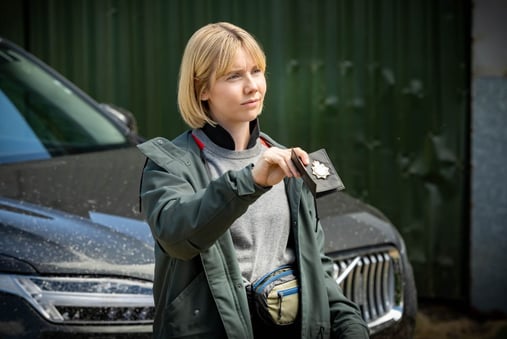

4 Star Trek: Strange New Worlds
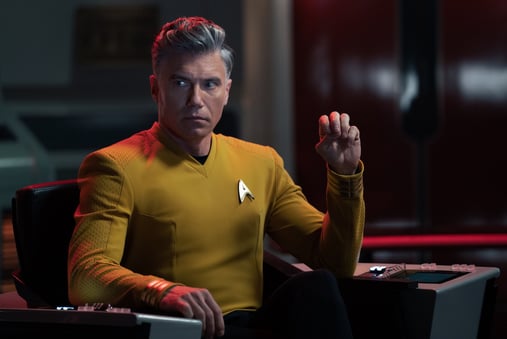

There have been many Star Trek shows over the years, from the good ones (The Next Generation and The Original Series) to the decent ones (Voyager, Deep Space Nine, maybe Discovery, maybe Prodigy) to the struggling ones (Enterprise, Lower Decks, Picard, although the final season of Picard is one of the best seasons ever). The best version of Star Trek is Strange New Worlds, which has released two ten-episode seasons so far. The seasons are exactly the right length to avoid any wandering episodes or extraneous filler. There have been two episodes so far that are not perfect and compelling, but quite a few episodes that individually are worth sustained applause, tears, and rewatching. It’s as if someone looked back at the history of the United Federation of Planets and Starfleet and decided to focus on specific moments that changed its history.
The episodic format is a return to what made the original Star Trek so compelling, without the drawn-out arcs of the other series. Each episode is important and dramatic, and usually someone overcomes significant odds to do “the right thing”. You can feel the Federation being created and improved in each episode. Christopher Pike is played by Anson Mount, and (initially) he has no idea that he is going to die or be disabled years later, as covered in the two-part The Menagerie from The Original Series. Then there is a dramatic episode where Pike finds out what his future is, and can easily take steps to avoid that future; but as he learns more, he sees what the consequences will be for the Federation, and he accepts his (future) fate. (We don’t know if his fate is years or seasons away, or imminent.)
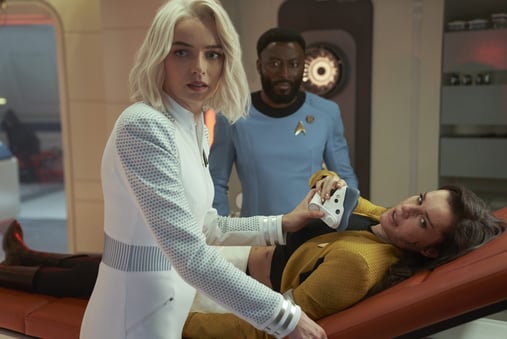



Pike has a long-distance relationship with Captain Batel, who is also his closest ally. Cadet Uhura is introduced to the show for the first time. First Officer Una Chin-Riley has an important and powerful role, but also an unexpected past—she is a a genetically modified Illyrian—that eventually brings her before a tribunal for trial, where Batel prosecutes her; Pike has taken leave to find an Illyrian defense attorney, and with subtle assistance from Batel, they offer the tribunal an acceptable path to acquittal. (It is one of the most dramatic, personal, and joyous moments of the series.) The Gorn race from The Original Series appears, and turns out to be far more powerful than anyone realized, probably the most dangerous threat the Federation faces. Security Chief La’an Noonien-Singh repeatedly plays a major role, including using her experience as the only survivor of a Gorn attack to protect and redirect the Enterprise crew. Spock and Nurse Chapel have a complicated relationship, intertwined with his engagement to T’Pring. Chief Medical Officer M’Benga is in the background, but turns out to have a significant role, even a fighting one, in several episodes. A young James Kirk and a young Montgomery Scott also appear.
There are numerous little touches, including those mentioned above, that pay attention to The Original Series and reward its fans, but each episode also stands alone; those homages are incidental to the story. Strange New Worlds is not just a better version of Star Trek; it’s a massive tribute to Starfleet’s history, its evolution, and the characters who built and reformed it. We’re left with such appreciation for everything that went into making Starfleet and the United Federation that we see in all the later Star Trek series.
5 His Dark Materials
This compelling show has episodes that don’t seem to make sense, tangents that you don’t understand as you’re watching them, incredible evil, conflicted main characters, plots that range from church corruption to fanciful technology to angels and witches and armored bears, heroes who die, and a young heroine who doesn’t understand how she got caught up in all this corruption. There are also many dimensions, with hidden and dangerous portals between them. Yet it all works, and ties together beautifully as it goes on.
The cast is stellar: Dafne Keen (Lyra Belacqua), Ruth Wilson (Marisa Coulter, Lyra’s mother)), James McAvoy (Lord Asriel Belacqua, Lyra’s father), Lin-Manuel Miranda (Lee Scoresby, the aeronaut), Amir Wilson (Will Parry), Ruta Gedmintas (the powerful witch Serafina), Andrew Scott (John Parry), Simone Kirby (Dr Mary Malone, an important physicist from “our” universe), and many others, including numerous talking creatures. It doesn’t take long before we realize there are multiple “worlds” or universes, and some tricky ways for a few people to move between them.


The cast is stellar: Dafne Keen (Lyra Belacqua), Ruth Wilson (Marisa Coulter, Lyra’s mother)), James McAvoy (Lord Asriel Belacqua, Lyra’s father), Lin-Manuel Miranda (Lee Scoresby, the aeronaut), Amir Wilson (Will Parry), Ruta Gedmintas (the powerful witch Serafina), Andrew Scott (John Parry), Simone Kirby (Dr Mary Malone, an important physicist from “our” universe), and many others, including numerous talking creatures. It doesn’t take long before we realize there are multiple “worlds” or universes, and some tricky ways for a few people to move between them.


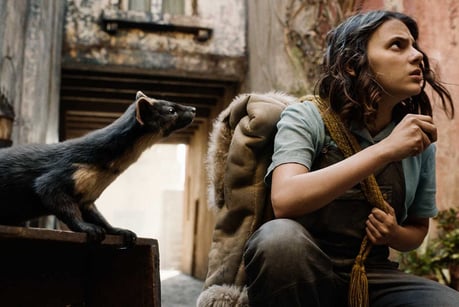

Lyra starts out innocent, but sees too many examples of Coulter’s actual behavior (including her use of “Gobblers” to kidnap and remove children, and her role in a very dangerous prison). Lyra then flees with Scoresby and her “golden compass” (the alethiometer). She befriends an armored bear and helps him recapture his rightful throne. Then things get even weirder: we see new dimensions, witches, “spectres”, the “subtle knife”, Mary Malone learn to communicate with “Dust” (angels, who have decided to revolt against the tyrannical Metatron), Lyra and Will traveling to the Land of the Dead (and escaping, against all odds), and then Coulter turns on the Magisterium to help Lyra and Asriel.
Finally there is the cataclysmic battle(s), where the dead are released, good Angels and witches ally with Asriel, Coulter, and Lyra (many of them sacrificing themselves to defeat Metatron and the corrupt Magisterium), and heroes from across the dimensions rise up together.
Despite the many worlds, many battles, many deaths, and grotesque authoritarianism, it all makes sense as you watch it, with the final confrontation between the church that has always called Eve “evil” (the originator of sin), and the long-oppressed people who have united, and come to realize that Eve was not evil: Eve was the originator of free will, not sin, and the church across all the dimensions is trying to destroy her influence, to suppress women and free thought, to rule without mercy. I’ve read the books, but watching the show would turn anyone into a feminist and free thinker. It’s a remarkable and powerful show; you lose track of who was bad and who died, because you’re so solidly on the side of the champions.


6 Shetland
For seven seasons, this show was excellent: nothing superficial about it, at least three complex and overlapping plots each season, DI Jimmy Perez (Douglas Henshall) challenging and irritating a lot of people by chasing down old leads and secrets, and Tosh McIntosh (Alison O’Donnell) juggling a family life and relentless work as Perez’s detective sergeant. Other characters are involved, including Sgt Billy McBride, who does the right thing; DC Sandy Wilson, who is easily misled and sometimes screws up; Cassie Perez, who is Jimmy’s stepdaughter; and Duncan Hunter, a friend who is not what he seems to be (and eventually turns out to be Cassie’s actual father).
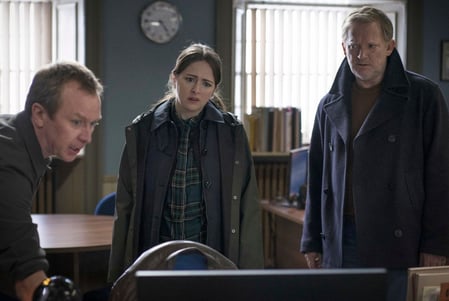



Every season is complex, and while the ending is usually a success, it’s always mixed. The culprits are often not who we expect, and some of them get away. Several times, Perez and Tosh leave Shetland to pursue difficult and dangerous cases, and it doesn’t always go well (though they survive). It gets ugly at times, with trafficked sex workers and drug dealers, and Perez is often threatened and scared, but refuses to stop. Duncan and Perez seem to be working together, but Duncan is hiding things, and they are both framed and jailed. A wanted exile from the U.S. is eventually discovered, but Perez learns that he wasn’t actually guilty and lets him go—doing the right thing, even though he has to resign as a result of this noble action.
I thought it ended after seven seasons, with Jimmy Perez’s resignation, then a new season came back and left me a bit conflicted. On the one hand, Tosh is finally fully in command of her new role as (acting) Detective Inspector, and she does everything right: she doesn’t back down, turns up old secrets, follows every lead, expects the same from her team, and is in every way the amazing lead detective we always hoped she would become.
On the other hand, an old London detective, Ruth Calder, who grew up in Shetland and left years ago, comes back to town for just a couple of days, and never leaves. Ruth Calder is now the lead detective going forward, even though Tosh did everything right, honoring all the work that Jimmy Perez had done to bring her to this point of earning her new (temporary) role. The eighth season is still complex and compelling, but it could and should have been Tosh’s. She and Calder work well together in the ninth season, but Tosh had earned the DI role.
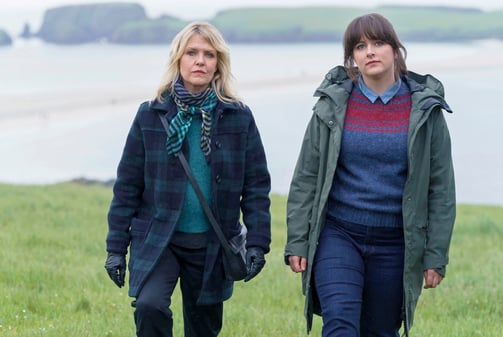

He then quotes Jesus and shows how those teachings (heal the sick, feed the hungry, care for the weakest, pray in private) are the opposite of what the Tea Party and the new Republican leadership are preaching (control women’s bodies, demonize education, ignore facts, don’t compromise, fear of progress, xenophobia, hatred of the government). He says they can pretend to be Republicans, but they are really the American Taliban, and they cannot survive if all Americans are allowed to vote.
Given that this show aired in 2013, and that all the events it covers happened around that time period, it’s shocking that things have gotten worse, not better. But having Will McAvoy risk his career back then to stand up and say these things, while defending and explaining his conservative values, remains a dramatic point in “history”. It loses the thread a bit in season 2, and there’s an overly-long and traumatic thread about kidnapping, torture, and abuse in Africa, but the basic point holds up: newsroom reporters choosing to do the right thing, cover true stories, stand up to oppression and threats, and continue doing their duty to the American people.
7 The Newsroom
This show sort of crept under the radar in 2013, perhaps being too political and airing on HBO Max. Jeff Daniels won his first Emmy for his role in this show. (He won his second for Godless in 2018. He’s amazing in both shows.) Aaron Sorkin did with Newsroom what he failed to accomplish with The West Wing: he told a great political story in only 25 episodes and three short seasons, rather than the 154 episodes of West Wing. (West Wing is still a great show; it’s just too long.) The Newsroom makes its point(s), gets to the point, and delivers the results without wandering or digressing.
It also takes an unorthodox approach: Jeff Daniels plays Will McAvoy, a moderate Republican, not a liberal, but when MacKenzie (Emily Mortimer, in her most extraordinary performance) re-enters his life, she leads him to challenge both the owners of their cable news network and the Republican orthodoxy.



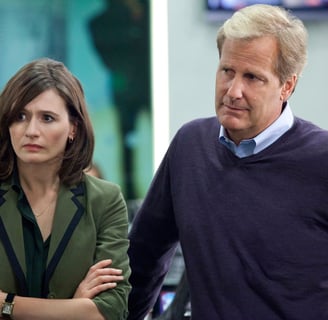


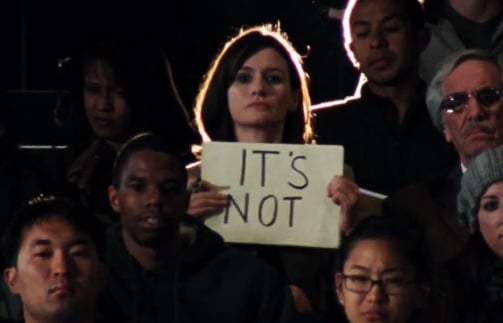

On stage at a press event, he is asked why America is the greatest country in the world. He thinks he sees MacKenzie in the audience telling him “It’s Not. But It Can Be.” He tries to duck the answer, but the moderator won’t let him. He finally lets his imagined view of MacKenzie take control, raising his voice and saying that we’re not one of the top countries in literacy, math, science, labor force, or exports, we’re low in life expectancy and near the bottom in infant mortality, and we only lead the world in three things: incarcerated prisoners, people who believe that angels are real, and defense spending, where we spend more than the next 26 countries combined. The audience is silent; some are shocked. He goes on to say that we used to be the greatest country in the world: we stood up for what was right, fought for moral reasons, waged wars on poverty rather than poor people, cared about our neighbors, explored the universe, cured diseases, cultivated the world’s greatest artists and the world’s greatest economy, and didn’t identify ourselves by who we voted for in the last election. He adds, “All of this happened because we were informed and led by great leaders. The first step in solving any problem is recognizing there is one.” It’s an incredible scene, perhaps the most powerful of the whole show—and it happens at the very beginning. It generates huge publicity, enough to get him in trouble at his job, but also to rally MacKenzie and their boss, who use Will’s dramatic and controversial speech to pivot the news network back to what it used to be: an organization dedicated to telling the truth.
The show goes on from there in a mostly episodic fashion, breaking some important true stories, including the Deepwater Horizon oil spill, the Koch brothers secret backing of the Citizens United case in the Supreme Court, the Fukushima nuclear disaster, the death of Osama bin Laden, Anthony Weiner’s scandal, the Boston Marathon bombing, and the growing movement to disqualify Black voters. During all of this, MacKenzie also brings in Sloan Sabbitt (Olivia Munn), a brilliant economist who is suddenly given national prominence, and she absolutely nails it every time, expanding the scope of the network’s investigations and reporting.
Will ends up talking about RINOs (Republicans in Name Only) on his show one night, saying the Tea Party calls him a RINO, then listing how they’re actually the pretenders. He lists what real conservatives and Republicans actually believe, then says the Tea Party believes in “loving America but hating Americans”; refusing any compromises (what both parties have traditionally called “government”); attacking poor people; claiming that America was founded on the Christian religion (despite what John Adams, Thomas Jefferson, and the First Amendment say).
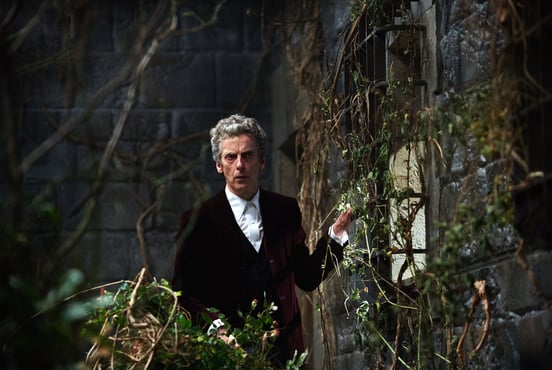

Peter Capaldi’s seasons occasionally wander, but he has six of the best episodes ever, including “Heaven Sent” and “Hell Bent”, where he dies and is reborn each day for 4.5 billion years, as he slowly breaks through the wall bringing him back to Gallifrey, where he battles for and takes control, eventually rescuing Clara Oswald (Jenna Coleman), though with tragic consequences. (He tries to erase her memory of him, to save her life, but actually his memory of her is erased. Her last scene, where she comes to find him and realizes that he has no memory of her, is both heart-wrenching and joyful, and impossible to watch without crying.) Capaldi’s arc with Clara Oswald is the equal of her season with Smith, and finally and exhilaratingly resolves her story.
Clara Oswald and Rose Tyler should be enthroned for their extraordinary stories.
Other arcs and companions appear along the way: Amy Pond and Rory Williams, with two extraordinary and time-defying seasons; Donna Noble, who saves the universe (and reappears in Tennant’s 2023 special); Martha Jones, who also saves the universe; and Ruby Sunday, who is as complex and powerful as any companion. There are emotional and powerful individual episodes along the way, including “The Fires of Pompeii”, “The Doctor’s Daughter”, “Vincent and the Doctor”, and many others.
It is often a perfect show. But not always, which is why it is not in my Top 3.
David Tennant’s seasons are superb. Rose Tyler (Billie Piper) and the “Bad Wolf” message were introduced in the first season, with Eccleston, but she and Tennant moved to an explosive new level with season 2, sacrificing himself to save her, ultimately “ending” with Rose being transported to a parallel universe and separated from Tennant seemingly forever, as they share one last final message in tears. The most powerful moment of her arc returns and resolves in the fourth season, Tennant’s last season, as she manages to get back into his world, but he dies (regenerates), and she is forced to go back to her parallel universe to save the previous cloned version of Tennant, who has lost the ability to live forever and will live out his life with Rose. She also reappears, sort of, in the incredible special “The Day of the Doctor”, where her spirit joins with Tennant, Smith, John Hurt (the long-hidden “War Doctor”), to save the universe during the Time War (and, contrary to long-held history, locking Gallifrey in a pocket universe so it’s not actually destroyed by Daleks).
There has never been and never will be a better arc than Rose Tyler’s.
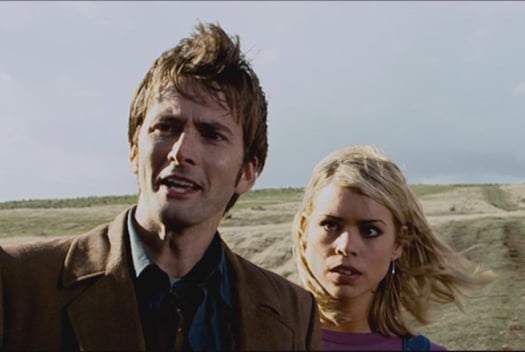

River Song is introduced near the end of Tennant’s run, and dies, but she essentially travels backwards in time, so her story develops further in the Matt Smith and Peter Capaldi seasons. Smith’s seasons are mostly superb, and we see the earlier versions of River, leading up to her death years earlier. We also see another incredible arc, where we eventually learn that River Song was actually the daughter of a kidnapped and forcibly-impregnated Amy Pond; River’s original name was actually Melody Pond, and Amy never knew she’d had a daughter. This whole plot, spread across numerous points of time, finally ends with “A Good Man Goes to War”, and it’s the most powerful and resonant story in all of Doctor Who.

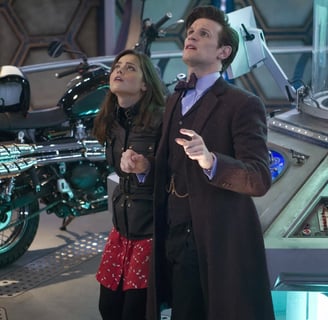
The modern Doctor (the “New Who”) introduced Christopher Eccleston, David Tennant, Matt Smith, Peter Capaldi, Jodie Whittaker, and Ncuti Gatwa. That’s the series I review here. Much of the New Who series is superb, easily the equal of any show on this list, but there are episodes and seasons that don’t always click. The repeated reappearances of the Master (the Doctor’s long nemesis) are useless and unpleasant. The Jodie Whittaker seasons lost the thread, not because of her great acting, or that of her companions, but because the writing fell flat too often. Some episodes feel like filler.


8 Doctor Who
9 Deadwood
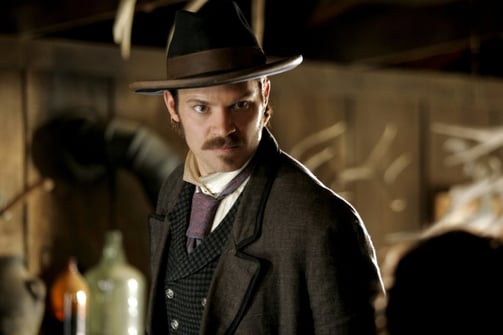

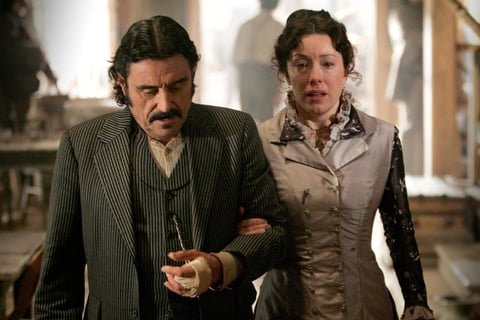



Garrett and Swearengen become reluctant allies, and as she breaks off her relationship with Bullock (when his wife and son appear in town), she learns to work with him and Star. It gets uglier, as Tolliver and Wolcott kill various people, and Hearst arrives in town to purchase the Grand Central hotel, while being blackmailed for his role in the murders. He threatens Garrett and is publicly arrested and dragged through the town by Bullock. Hearst brings his hired Pinkerton’s to town to create even more trouble. Swearengen, Garrett, and Bullock unite to take down Hearst, who is shot but survives, forcing Garrett and Trixie to flee, before Hearst finally agrees to leave town.
And then the show ends, without resolution.
Deadwood was a great show for three seasons, but then unexpectedly canceled. (This was before violence and rough language had become accepted on HBO, and some viewers might not have been prepared for its excesses.) It was a critical success and one of the best TV shows of all time, but ending on a cliffhanger held back its reputation.
The cast is superb: Timothy Olyphant, John Hawkes, and Ian McShane as the actual historical characters Seth Bullock, Sol Star, and Al Swearengen, Molly Parker as the widowed heiress Alma Garret, Paula Malcomson as the prostitute who eventually marries and has a child with Sol Star, Kim Dickens as the eventual brother owner Joanie Stubbs, and others playing the roles of Wild Bill Hickok, Calamity Jane, Charlie Utter, Jack McCall, Martha Bullock, Doc Cochran, Silas Adams (Titus Welliver), Hearst’s agent Francis Wolcott (Garret Hillahunt), the sleazy and corrupt Cy Tolliver, and the even more corrupt George Hearst.
Bullock comes to town, with Star, to create a hardware store in the new gold mining town of Deadwood, but he keeps getting involved in dangerous situations that often put him on the opposing side of Swearengen. He finds that immigrants were killed be Swearengen’s people, not the Natives as false claimed; hunts and finds Wild Bill Hickok’s killer; protects Alma when her father arrives to steal her gold mine, beating and forcing her father out of town; and when Tolliver’s corruption is revealed, he forces the existing sheriff out and takes over.
As years passed, it became more and more popular, and the movie conclusion was finally released. The film is set ten years after the show’s ending, keeping most of the core characters, shows what’s happened since, and finally has the resolution(s) we wanted all along.
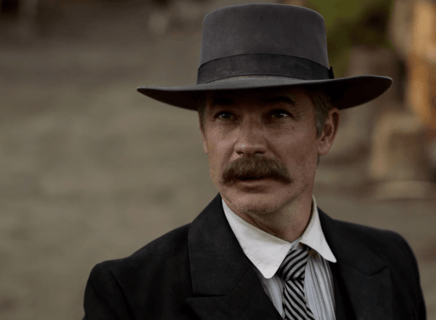

10 Wednesday
Jenna Ortega is a blast to watch and cheer on as Wednesday Addams. Her parents force her to attend Nevermore Academy, where they went when they were young, because she has been kicked out of too many other schools for making trouble. Nevermore has many students with supernatural powers; Wednesday does not seem to be one of the more talented ones, though she finds ways to help other students and succeed in various challenges, including a tournament that was secretly rigged against her.


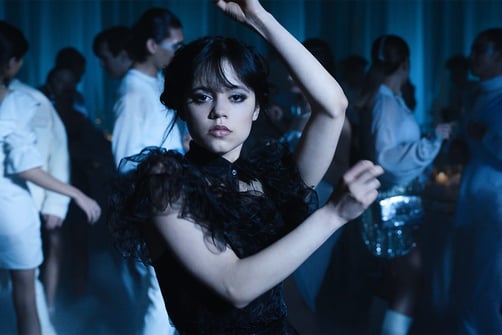

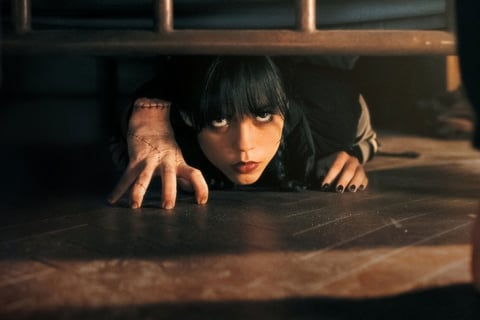



Other students resent her, make fun of her, and try to hold her back. Thing (the hand from the TV show) comes to help her, staying hidden as much as possible. She gets angry, sees evidence of danger, knows how to investigate, and unearths hidden secrets at the academy and in town. The monster Hyde kills students and civilians, and Wednesday suspects Principal Weems (who is in fact a shapeshifter, but not the Hyde). It takes episodes for the true villain(s) to slowly emerge, and for Weems and Wednesday to unite.
Wednesday’s dance scene is the most iconic part of the show; everyone is dressed in formal white attire, but she shows up in a short black lace dress and completely dominates the event. It turns out to be part of her ongoing attempt to unite the students, even those who despise her.
The supernatural element becomes all-important, bringing long-deceased characters back to life. She guesses wrong a couple of times, and her investigation has consequences, but she keeps trying and her powers keep growing. She learns that the monster Hyde is very close to her, that his “master” has longstanding connections to both Wednesday’s family and an old plot to destroy the Academy (to destroy all of its supernatural “outcasts”)—and that it’s actually a teacher at the Academy, Laurel Gates, who then kills Principal Weems.
When things are at their worst, she comes through. I’m not sure she ever smiles in the show; she glowers, stares, glares, and never stops antagonizing students and teachers or fighting to expose the true bad guys. And in the most climactic scene of this series, Gates brings back the long-dead man (Crackstone) who started this plot of revenge and destruction and together they try to burn the place down. Wednesday’s allies unite with her, some discover their long-suppressed powers, Crackstone is killed, Gates is immobilized (possibly killed), and the Hyde is arrested and imprisoned.
This show has been renewed for another season, coming out this fall, and if the second season is half as good as the first one, it will be a thrilling blast.
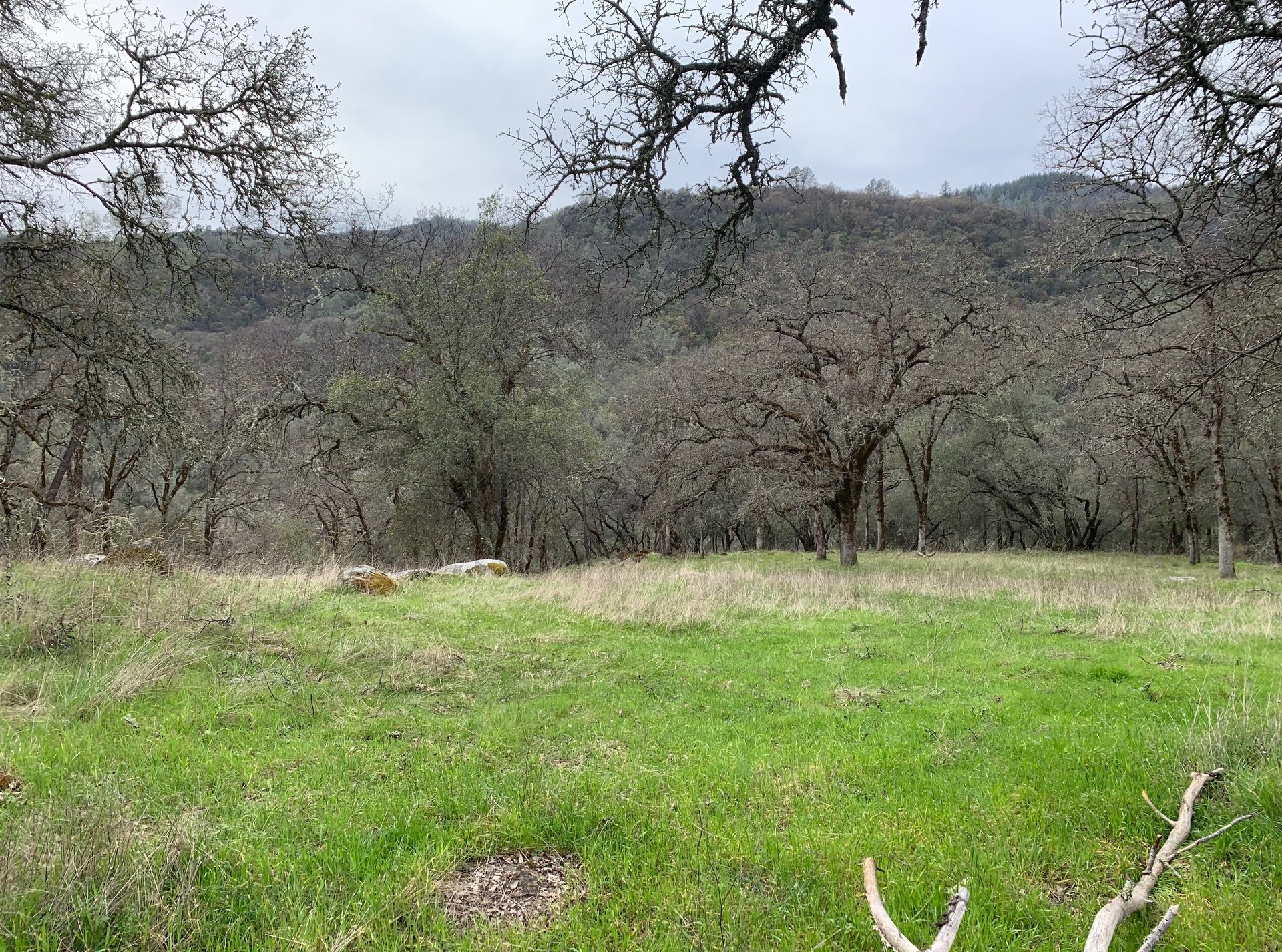
Stories
Essays
Reviews
© 2025. All rights reserved.
